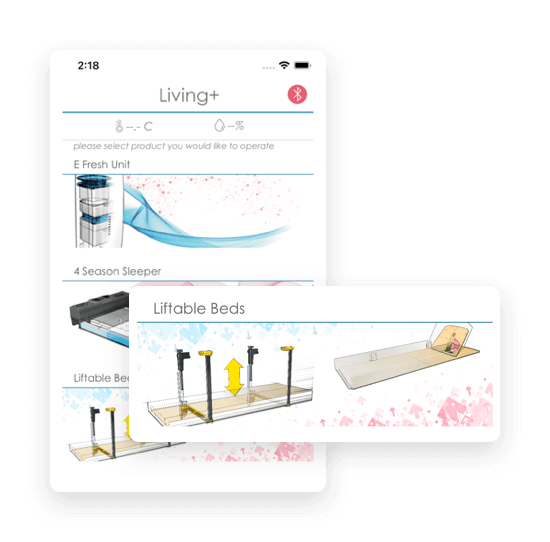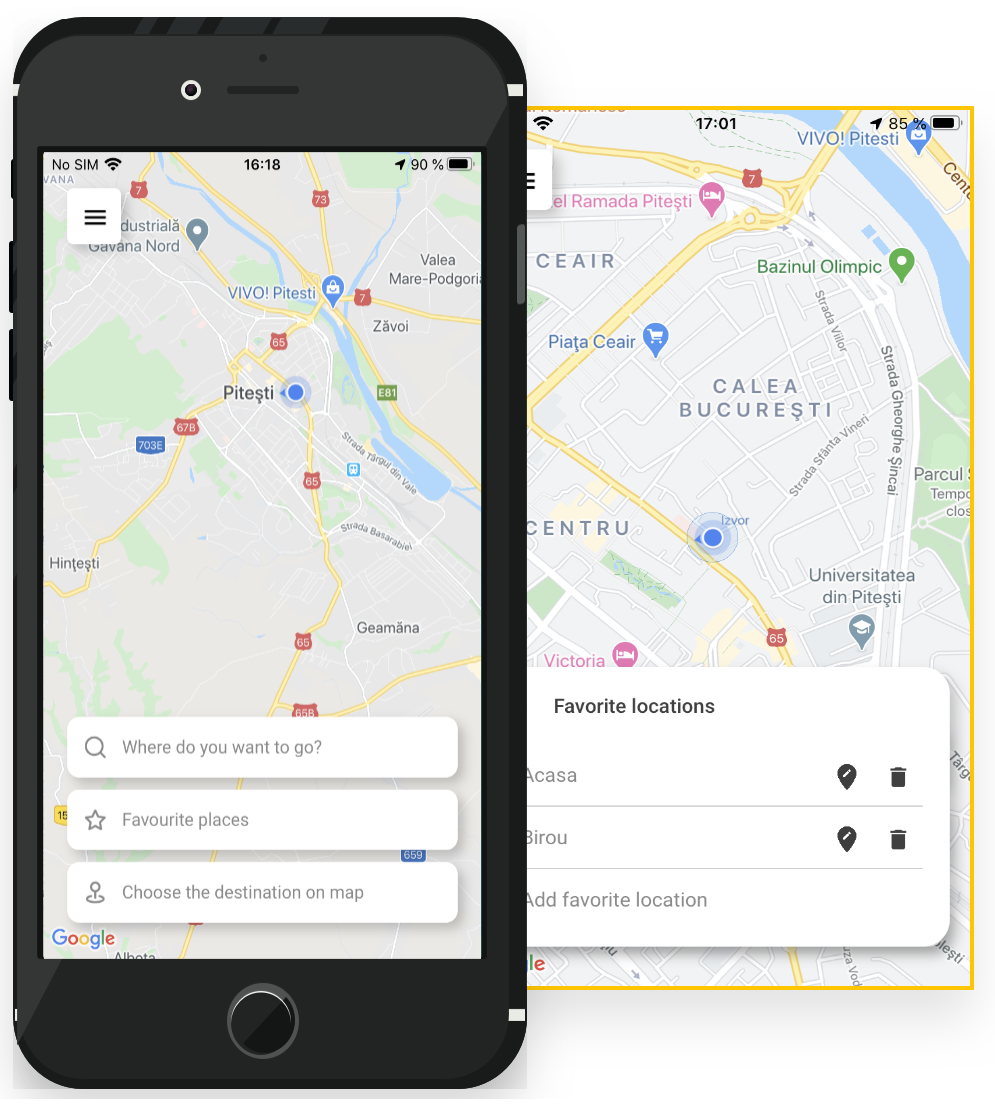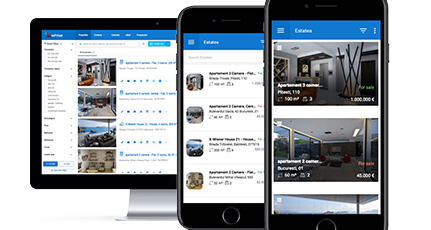What are the first things that cross your mind when you think about apps’ innovation? Smart features and functions? IoT? Streamlined experiences? Virtual reality? High responsiveness to contextual/specific needs? Synced assets across every user?
The apps’ power becomes greater every day (that’s for sure). Creativity is unlimited (literally), while technology evolution is at high speed. Humans become less visible once the apps seem to take care of everything in their place.
These changes impact all types of industries. From entertainment to banking, human resources, construction, health, real estate, education, etc. – everything is powered by smart apps that are designed and built to do the right things, at the right place, track and interpret the valuable data only, and keep the focus on well-defined audiences.
Let’s take a quick look at what’s happening now on the market + what trends are announced for coming years.
Industries where apps seem to replace humans
Banking sector is probably one of the most affected by the digital transformation disruptions. Moving from traditional banking to digital services impacted the industries, especially from the workforce needs perspective.
One by one, banking agencies were replaced by web and mobile apps that are able to offer the same services in less time and remotely.
Moreover, smart apps can extract and interpret customers’ behavior and understand their expectations based on existing data.
These changes started long before the pandemic year 2020. And during the pandemic, digital transformation was accelerated.

So, getting back to our question (speaking of banking or other industries where digital disruption is an ongoing reality): Where can technology replace humans? (and where it can’t)
(source: report Futurum)
From smart mobile apps to web apps, portals, platforms, and SaaS – apps innovation will keep growing.
For some services – like obtaining a loan, a guarantee fund, transactions, etc. – dedicated employees are not needed anymore. Apps can do everything in their place.
Still, the human touch is a valuable asset for a financial company. And, customers are expecting to find it in specific services (getting answers/support for specific questions/situations, interacting with the humans behind a brand, etc.)
Take a look at some financial projects we developed in the past years for our clients (and check out also their case studies to see how they defined the demarcation line between the human touch and power of apps)

CIM Bank app development project pursued 3 main objectives:
- seamless integration with the existing website;
- safe and secure access and transactions;
- fast banking (to respond to CIM Bank customers’ current needs).

A highly secure and performant app that provides a simplified loan approval process by synchronizing two digital solutions: an intranet platform (designed for employees) and an external platform (designed for Partners and Borrowers).
See the case study
This project’s core objective was to create a fast, safe, and secure digital tool so people without tax expertise can quickly extend their tax deadlines without involving a professional tax preparer.
See the case study
Complex but intuitive financial system that simplifies and automates the invoice management process at multiple levels, and all the financial activities related to it.
See the case study
Developing a dedicated web app (with focus on user experience – UX) that allows dynamic management for financial data (collection, storage, and synchronization) through an online module that is connected to an existing app.
See the case studyDISCOVER MORE FINANCIAL APPS FROM OUR PORTFOLIO
For what fields do apps innovation provide support?
The market landscape has dramatically changed in the past 5 years, while the pandemic context brought new digital challenges for several industries.
Workplaces, education, healthcare, real estate, human resources, and retail are just a small part of the industries that searched for digital transformation support. At the same time, companies’ owners from these industries were forced to rethink several job positions in terms of digitalization.
(source: European Commission, 2020)
Key digital challenges / industry
- education: online courses – communication – examinations;
- real estate: remote communication and trading, virtual property presentation;
- human resources: online interviews / online data and documents transfer;
- retail: e-commerce platforms building / online promotion;
- healthcare: online evaluation / triage / online appointments;
- restaurants: migrating all the activities online / training staff for online activities.
Main challenges in companies
- employees’ lack of digital skills;
- lack of expertise in adopting digital initiatives;
- inflexible organizational architecture;
- lack of experience in building a digitization strategy;
- limited budget.
How challenges are solved by apps innovation
- education: dedicated platforms (desktop, web, and mobile);
- real estate: dedicated digital solutions and tools (web platforms, marketplaces, etc.);
- human resources: custom HR platforms for recruiting, evaluating employees, communication (all-in-one platforms, chatbots, specific apps, etc.);
- retail: custom e-commerce solutions (web portals, marketplaces, online shops, etc.);
- healthcare: mobile apps, web apps, custom websites, interactive apps;
- restaurants: all-in-one solutions for ordering-sales-delivery, extended features for tracking customers’ behavior, and rewarding loyal customers (CRM systems).
Need ideas for developing a custom app for your business?
What industries are looking for digital transformation
Not all industries perceive apps innovation as a threat or a challenge. In several fields, innovation is an emerging engine, a must-have that unlocks evolution and helps companies/organizations get closer to customers’ needs and expectations.
And, above all these, replacing humans with technology is more seen as an opportunity than a risk.
(source: PTC Report)
Some examples of innovative apps that simplify humans’ work and improve results quality

A multi-platform digital system for managing incidents and communication:
- 0% paperwork for the municipality staff;
- reduced time and costs for solving problems;
- fast implementation;
- highly intuitive apps (for both citizen and municipality’s staff).

Innovation-driven iOS app that supports and completes Living+ project by allowing users to manage and control from distance 3 physical devices:
- e-fresh;
- season sleeper;
- fast implementation;
- liftable bed.

Ordering and transportation made easy through a user-friendly and sales-booster app. From early adoption to customized version – our dedicated dev teams are ready to turn your business needs into a sales generator.
DISCOVER THE SOLUTION
Customized app development for Taxi based on an existing prototype.
Our developers are ready to take over your specific requests and integrate them into a dynamic and ready-to-use app. TAXI APP brings together Drivers and Clients in a common platform where they can easily access key-features like matching in seconds orders with available taxi services.
DISCOVER THE SOLUTIONGet a personalized offer for adapting an existing app to your business needs.
SOME TAKEAWAYS:
- as technology evolves, the market is forced to adapt and adopt digitalization fast;
- while some industries are affected by the digital disruption (real estate, tourism, and hospitality, finance, etc.) – apps innovation being considered as a real “job killer” – others rely on it or even are looking for innovation to grow;
- fast digital adoption can be done by adapting existing digital products (e.g., SmartCity, TaxiApp, the complete solution for restaurants, etc.) to companies’ needs or by developing from scratch custom apps tailored to every company’s specific needs.




